
Dear readers,
When did we forget how to talk to each other? Nowadays, most people prefer to write an email or type a text message into their mobile phone instead of simply calling the person they are talking to.
Why is that the case? Are we afraid of uncomfortable questions? Do we lack the time for more detailed conversations because we are constantly under pressure? Even many older people who have long since retired from working life are often frantically hacking away at their smartphones instead of pressing the dialling button. I don't understand it.
How much faster can questions or even problems be clarified in a direct conversation! How much more personal is a nice chat when you have the other person at your ear instead of exchanging "messages" teeming with cryptic abbreviations every few minutes!
This development is not the fault of technology, especially not the mobile phone. It's us humans who no longer seem to be able to put it down. I don't exclude myself from this. Even during a cosy sundowner in the cockpit, the little wonder is almost always within reach. And many an evening passes with hours of watching video clips instead of having a good chat in good company.
In the meantime, the nice tradition of chatting often falls by the wayside. Greeting the neighbouring berth holder in a friendly manner, asking about their well-being and where they are from and where they are going has always been part of good manners in the harbour. To go beyond this initial exchange and continue the conversation, chatting about boats, God and the world and forgetting the time - what could be more marvellous?
You might think it's old-school, old-fashioned. I think it's worth taking a self-critical look at our own communication behaviour. Sometimes our increasing refusal to talk has fatal consequences. For example, rescue services, professional skippers, lock and bridge keepers have long noticed that sailors can no longer be contacted by radio.
A VHF radio hangs above almost every navigation table (right next to the plotter, but that's another topic). However, hardly anyone uses a microphone any more. All too often, the devices are not even switched on to at least hear if there is an emergency in the vicinity. Or the lock keeper wants to give instructions on how to enter the lock chamber.
When sailors are asked about the topic, they often wave it off. "Who uses a mobile phone these days?" they say. And: "The mobile phone is much more practical!" That may be true in many cases. But not in all cases. In particular, it is a common misconception that the smartphone is an equivalent replacement for the radio!
Just recently, we read that a sailboat that had been wrecked on the Baltic Sea was unreachable. It was struggling with engine and on-board electronics failure in a light breeze. As it did not reach its destination harbour at the agreed time, relatives alerted the sea rescuers. They had to search for a long time until they finally received a weak radar signal that directed them to the missing man. If he had been using a handheld radio, the time-consuming search would probably have been significantly shortened.
Professional ship captains, for example on the Elbe, also complain that they cannot speak to sailors in dangerous situations because they are simply deaf on the radio. The same applies to traffic centres. After all, nobody has their own mobile phone number in their sails!
Experience shows that it is not uncommon for sailors to shy away from radioing because they simply lack the experience. This is understandable, as the radio licence exam was a long time ago, and many radio courses are not really practical either.
But that should not be an excuse. In the current YACHT edition and also here on yacht.com we therefore take another detailed look at the radio. The focus here is on how to achieve a good level of radio routine with a few tricks and hacks. It's worth getting to grips with the subject; if in doubt, it can save your life!
In this sense: "Over!", not: "Out!" - means I stay on reception. Write me your opinion on the subjectI'm curious.
Pascal Schürmann
YACHT copywriter
Recommended reading from the editorial team

New podcast episode
Across the Müggelsee at 70 km/h in an ice sailing boat - with YACHT editor Fabian Boerger

In the 59th episode of YACHT - the sailing podcast, Timm Kruse welcomes editor Fabian Boerger, who reports on ice sailing on the Müggelsee.
Sailing drones
Efficient surveillance on the Baltic Sea - soon with weapons?
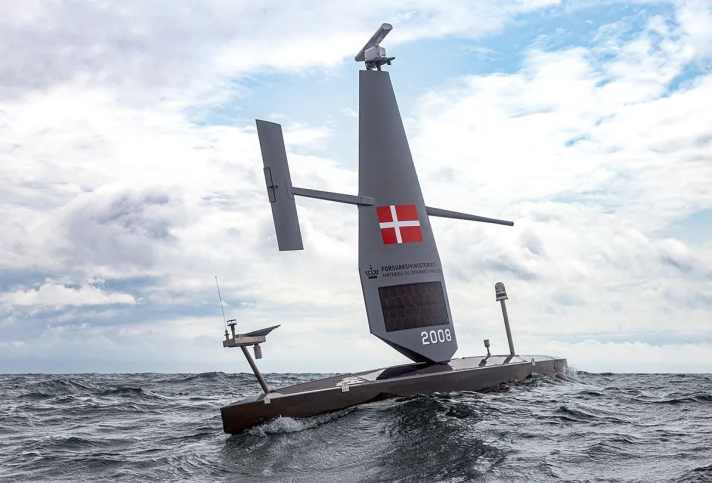
Result of the six-month test deployment of sailing drones in the Baltic Sea: Danish navy was able to identify 170,000 ships. Weaponisation as an option?
Knierim Yachtbau
New small series with a classic touch
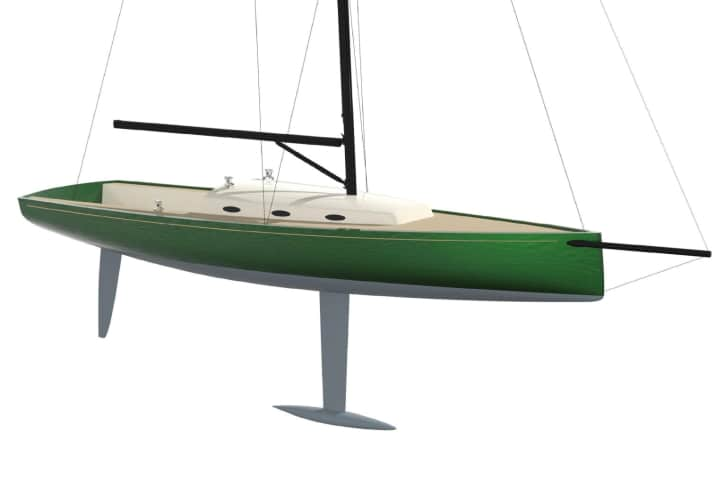
Knierim Yachtbau is currently building the prototype of a BM 31, which represents the start of a series of customised coastal cruisers.
Garmin quatix 8 Pro
Smartwatch for sailors, now with satellite SOS
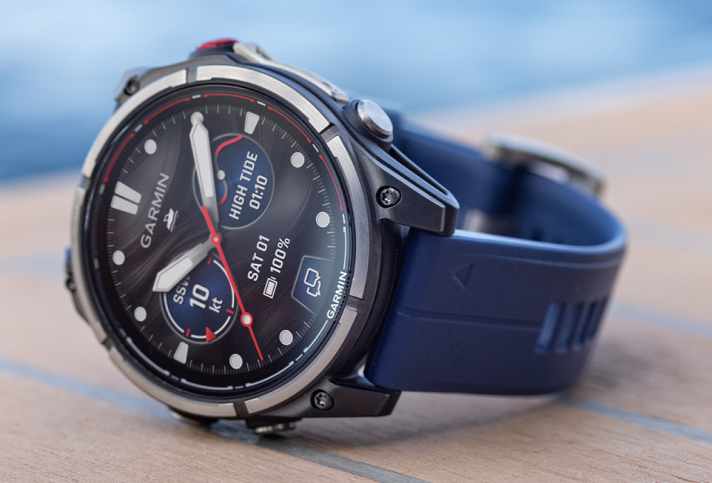
The quatix 8 Pro from Garmin combines smartwatch and satellite communication: inReach technology enables SOS emergency calls up to 80 kilometres off the coast - without a smartphone.
Peter von Seestermühe
The 90th birthday

The steel yawl "Peter von Seestermühe" has been at home on the high seas since 1936. Owner Christoph von Reibnitz is currently preparing the classic yacht for her 90th sailing season, in which he will sail to the Caribbean for the 15th time with the Atlantic Rally for Cruisers.
Müggelsee
Historic ice yacht sails for the first time after complete restoration

A Berlin family has brought the historic ice yacht "Papagena" back onto the ice. Completely restored, the 15-metre sled now sails across the Müggelsee.
Baltic Sea
Easterly winds cause historically low water levels - and an opportunity
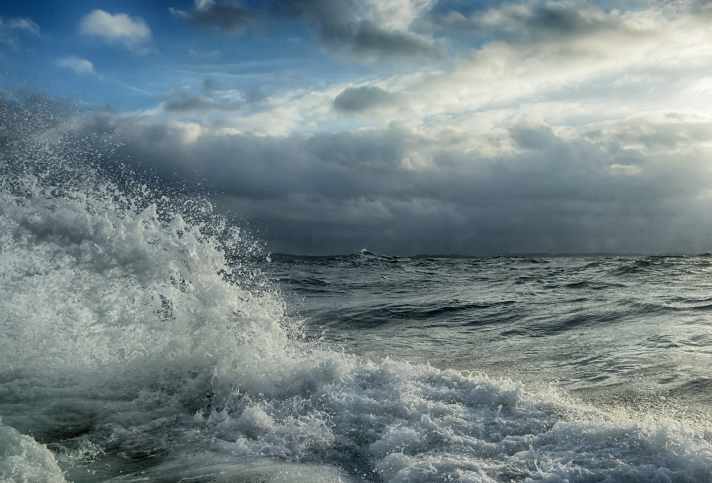
Long-lasting easterly winds are causing historically low water levels in the Baltic Sea. Scientists see this as a good opportunity to improve water quality.
Lake Constance
Tourist tax judgement sends out a signal - to the chagrin of sailors
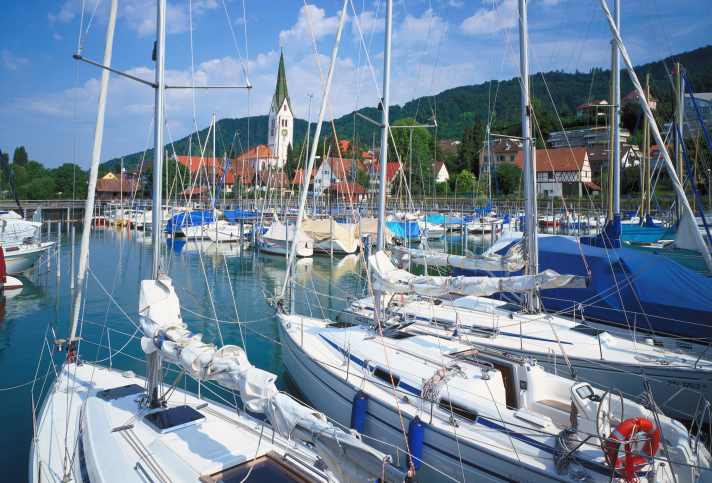
Kressbronn has won the legal dispute over the visitor's tax for boaters. This has prompted other municipalities on Lake Constance to want to collect the tax too.
Superyacht ranking
The 200 largest sailing yachts in the world

Our ranking shows the largest sailing yachts, from the 143 metre long "Sailing Yacht A" to the almost 50 metre long "Thalia". We provide data and designers, as well as brief portraits of the top 100. We also reveal which yachts are for sale - and at what price.
Circumnavigation
Pacific rendezvous: "Westward solo is brave!"
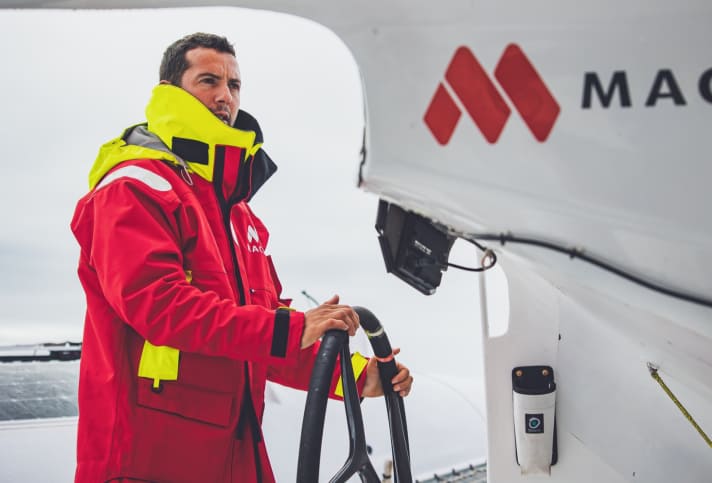
Sailing round the world "the wrong way round": Guirec Soudée sails around the world from east to west against the wind. The adventure and Ultim skipper is chasing a record from 2004.
Newsletter: YACHT-Woche
Der Yacht Newsletter fasst die wichtigsten Themen der Woche zusammen, alle Top-Themen kompakt und direkt in deiner Mail-Box. Einfach anmelden:

